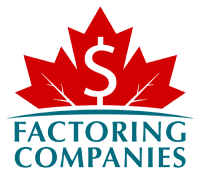
If you’ve looked into invoice factoring at all, you’ve probably noticed a recurring theme. It’s always trucking, trucking, trucking. But, what about factoring for non-traditional industries? While it’s true that factoring companies tend to zero in on freight factoring because it’s almost always a slam-dunk for everyone involved, the versatility of this funding solution means that lots of other businesses can benefit from it and many factoring companies can help you, too. In this guide, we’ll explore some non-traditional industries that benefit from factoring, how to ensure your factoring agreement works for you, and how to find a provider that understands your business even if you’re outside the typical demographics.
The Basics of Invoice Factoring
Invoice factoring is a financial solution that helps businesses bridge cash flow gaps by converting unpaid invoices into immediate cash. Instead of waiting weeks or even months for customers to pay, you sell your invoices to a factoring company at a discount. In return, you get most of the invoice value upfront, with the remainder, minus a small fee, paid once your customer settles the bill.
How Invoice Factoring Works
The factoring process is simple, but its impact can be transformative for businesses of all sizes and industries.
- You Issue the Invoice: After providing goods or services to your client, you issue an invoice with standard payment terms.
- Submit the Invoice to a Factoring Company: Once your invoice is approved, the factoring company purchases it and advances most of its value. This can be anywhere from 60 to 95 percent, though it usually falls closer to 80 to 90 percent of the invoice’s value.
- Your Client Pays the Invoice: The factoring company takes over the waiting game and works directly with your client to collect payment.
- Receive the Remaining Balance: When your client pays, the factoring company sends you the remaining amount minus their fee.
It’s a simple process, but its impact can make a world of difference for businesses of all sizes and industries.
The Benefits of Factoring
Invoice factoring isn’t just a financial tool. It’s a strategic advantage that can help businesses manage cash flow, grow sustainably, and focus on what they do best. A few benefits are covered below.
Steady Cash Flow
Factoring gives you the cash you need to keep your business running smoothly, whether it’s covering payroll, restocking inventory, or seizing growth opportunities. It eliminates stress over delayed payments and awkwardly chasing clients for money.
No Debt Involved
Unlike traditional loans, factoring isn’t a form of borrowing. You’re selling your unpaid invoices, which are considered a business asset. This means you’re not taking on debt or dealing with repayment terms, which can help keep your balance sheet in good shape.
Faster Scaling
Growing businesses often face cash flow constraints, especially when scaling rapidly. Factoring provides the working capital needed to take on new clients or expand without financial roadblocks.
Flexible Eligibility
Factoring companies focus on your clients’ creditworthiness rather than yours. This makes it an excellent solution for newer businesses or those with limited credit history.
Administrative Support
With factoring, you’re also outsourcing part of your accounts receivable management. Many factoring companies handle collections, saving you time and ensuring professionalism in client interactions. Some will handle invoice preparation, too.
How to Tailor Factoring for Non-Traditional Industries

Every industry operates differently. The key to making factoring work for your business is finding a provider who understands your unique needs. Here’s how factoring agreements can be tailored to suit non-traditional industries.
Adjust Advance Rates
Industries with varying levels of risk may see different advance percentages. For example, businesses with longer payment cycles or unpredictable cash flows, like creative agencies or IT services, might require higher advances to stay competitive. A factoring company that specializes in your sector will set advance rates that reflect your industry’s norms and ensure you have enough capital to operate efficiently.
Customize Collection Terms
In industries like healthcare or professional services, clients often prefer a more sensitive or professional approach to collections. Many factoring companies offer white-label collection services, meaning they interact with your clients under your company name. This ensures continuity and professionalism in client relationships.
Leverage Flexible Contract Options
Some industries have seasonal cash flow challenges, such as event planning or food suppliers. Locking into long-term contracts with fixed minimums might not make sense. Look for factoring agreements with month-to-month terms, adjustable factoring limits, or “spot factoring” options, where you only factor select invoices when needed.
Tap into Specialized Invoice Management
Industries with complex invoicing, like IT services or construction, may deal with milestone billing, progress invoicing, or extended payment terms. A factoring provider familiar with these setups can handle milestone payments or ensure advances match the timing of cash flow needs.
Maximize Industry-Specific Perks
Some industries face unique operational hurdles. For example, staffing agencies need immediate cash to meet payroll demands, and B2B food suppliers require solutions to manage perishability and inventory. Factoring companies that specialize in your industry might offer additional services, such as payroll management or supplier payments, that align with your day-to-day operations.
8 Non-Traditional Industries That Benefit from Factoring
Businesses in a wide range of industries, including those you might not immediately think of, can use factoring to overcome unique challenges and unlock opportunities for growth. Let’s take a look at some of the most common ones.
1. Creative Agencies (Marketing, Design, and PR)
Creative agencies are often caught in a delicate balancing act. They handle multiple campaigns simultaneously, each requiring upfront investment in tools, talent, and ad spend. But with clients frequently taking weeks or months to pay invoices, agencies often find themselves stretched thin. This cash flow crunch can make it difficult to fund new projects or pay staff on time.
Why Factoring Works for Creative Agencies
Factoring is a natural fit for creative agencies because it transforms unpaid invoices into immediate cash. Here’s how it solves common challenges:
- Covers Upfront Costs: Whether it’s hiring freelancers, purchasing design software, or running paid ad campaigns, factoring ensures you have the funds to cover these expenses without waiting on client payments.
- Scales with Your Needs: As your agency grows and takes on bigger campaigns, factoring provides the working capital needed to scale operations seamlessly.
- Protects Client Relationships: Many factoring companies offer white-label services, meaning they’ll manage collections professionally under your agency’s name. This ensures your client relationships stay intact while you get paid faster.
2. IT Services and Software Development
IT companies often deal with long billing cycles, complex project timelines, and high upfront costs for skilled labour, tools, or infrastructure. Whether it’s developing custom software, managing cybersecurity for a corporation, or maintaining IT systems, these businesses frequently encounter cash flow gaps. On top of that, clients often have extended payment terms, leaving IT providers waiting weeks or months to get paid.
Why Factoring Works for IT Services
Factoring provides a flexible cash flow solution that aligns with the unique demands of IT businesses:
- Bridges Payment Gaps: Factoring turns unpaid invoices into cash, allowing IT companies to cover ongoing project costs without waiting for client payments.
- Supports Long-Term Projects: For businesses managing multi-phase contracts, factoring ensures steady funding at each stage, so there’s no disruption to timelines or deliverables.
- Funds Talent Acquisition: Recruiting and retaining highly skilled IT professionals can strain budgets. Factoring ensures you can pay salaries and contractors on time, keeping your team focused on delivering results.
- Helps Scale Operations: As IT businesses take on larger or more complex projects, factoring provides the working capital needed to expand infrastructure or onboard new clients seamlessly.
3. Healthcare Services (Physiotherapy, Home Care, Medical Clinics)
Healthcare providers often face cash flow issues caused by delayed insurance reimbursements, government program payments, or extended terms from larger institutional clients. Meanwhile, operational costs like payroll, medical supplies, and facility maintenance never slow down.
Why Factoring Works for Healthcare Services
- Stabilizes Cash Flow: Factoring bridges the gap between billing and reimbursements, providing immediate funds for healthcare businesses to cover day-to-day expenses.
- Maintains Service Quality: With reliable cash flow, providers can invest in staff training, new equipment, or expanded patient care services.
- Reduces Financial Strain: Instead of relying on loans, factoring offers a debt-free solution, enabling providers to focus on patient care without worrying about finances.
4. Professional Services (Consultants, Accountants, Legal Firms)
For professional service companies such as consultants, accountants, and law firms, late payments are a common hurdle, especially when working with corporate clients who often delay settling invoices. Combined with fluctuating workloads and high operating costs, maintaining consistent cash flow can be difficult.
Why Factoring Works for Professional Services
- Smooths Revenue Cycles: Factoring ensures steady cash flow, helping firms manage operational expenses during slow billing cycles.
- Preserves Client Relationships: Factoring companies handle collections professionally, so you get paid faster without straining your client interactions.
- Funds Expansion: Whether hiring additional staff or investing in technology, factoring provides the working capital needed to grow your firm.
5. Construction and Trades
Trade and construction businesses often experience cash flow bottlenecks due to progress billing, milestone payments, or extended terms from clients. Subcontractors face additional hurdles when working under general contractors who may restrict financing options.
Why Factoring Works for Construction and Trades
- Supports B2B Contractors: Businesses like electricians or signage specialists with direct contracts can factor invoices to cover material costs, payroll, or other expenses.
- Facilitates Quickpay Solutions: General contractors can partner with factoring companies to offer quickpay options, ensuring subcontractors get paid promptly and project timelines stay on track.
- Funds Project Growth: Factoring ensures access to cash when taking on larger or more complex projects, reducing the financial strain of scaling operations.
6. Staffing and Recruitment Agencies
Staffing agencies are caught in a tricky position. For instance, temporary staffing agencies typically pay employees weekly or biweekly, but their clients can take up to 90 days to pay invoices. This gap can cause significant strain, especially when scaling operations or hiring for large contracts. Meanwhile, permanent staffing agencies have considerable overhead and may not be paid until placement is made.
Why Factoring Works for Staffing Agencies
- Keeps Payroll on Track: Factoring ensures temporary staffing agencies can pay their workers on time, even when client payments are delayed.
- Provides Working Capital: Permanent staffing agencies can use factoring to cover recruiting expenses, marketing, or operational overhead while waiting for placement payments.
- Facilitates Growth: Factoring allows agencies to confidently take on larger contracts or new clients without cash flow concerns.
- Streamlines Administration: Many factoring providers offer accounts receivable management, freeing up time for staffing agencies to focus on recruitment and placements.
7. Food Manufacturers, Distributors, and Importers
Businesses in food manufacturing, distribution, and importing face unique cash flow challenges due to the nature of their industries.
- Manufacturers: High upfront costs for raw materials, labour, and production create financial strain, especially when clients take weeks or months to pay.
- Distributors: Large orders, warehousing expenses, and transportation costs are often compounded by delayed payments from buyers.
- Importers: Costs for sourcing and shipping products internationally, coupled with payment delays and currency fluctuations, can disrupt cash flow.
Why Factoring Works for Food Manufacturers, Distributors, and Importers
- Funds Upfront Costs: Factoring provides manufacturers with immediate cash to cover raw materials, production expenses, or workforce needs.
- Improves Logistics: Distributors can use factoring to fund warehousing and transportation, ensuring smooth operations.
- Eases Import Expenses: Importers can leverage factoring to pay for shipping, customs, and other upfront costs while waiting for payment from domestic clients.
- Supports Growth Opportunities: Whether scaling production, expanding distribution networks, or increasing imports, factoring ensures access to the capital needed to grow.
8. Education and Training Providers
Training providers working with businesses or government clients often face extended payment cycles that can disrupt cash flow. At the same time, operational costs like facilities, technology, and instructor salaries are ongoing.
Why Factoring Works for Education Providers
- Stabilizes Cash Flow: Factoring ensures providers can meet their financial obligations while waiting for clients to pay.
- Supports Growth Initiatives: Whether expanding facilities or investing in virtual training tools, factoring provides the working capital to scale operations.
- Streamlines Admin Work: Many factoring companies manage collections, freeing up time for providers to focus on delivering quality programs.
Things to Consider When Getting Started with Factoring for Non-Traditional Industries

Factoring can be a transformative solution, but before diving in, it’s essential to consider a few key factors to ensure it aligns with your business’s needs. While the basics of factoring remain consistent, non-traditional industries may face unique challenges and opportunities when establishing an agreement.
Your Industry’s Norms
Some industries, like creative agencies, often work with clients who expect longer payment terms, while others, such as staffing agencies, face tight payroll schedules. Knowing how factoring fits within your industry helps you set realistic expectations. Research factoring companies that specialize in your sector. They’ll understand your unique challenges and tailor solutions to fit your business model.
The Cost of Factoring
Factoring fees typically range from one to five percent of the invoice value. While this is small, it can add up if you’re factoring a lot or working with thin profit margins. Compare multiple factoring providers to find competitive rates. Also, look for companies that offer transparent fee structures without hidden costs.
Recourse vs. Non-Recourse Factoring
On average, six percent of Canadian invoices are written off as bad debt, per Atradius research. Factoring can help put a dent in this figure for you because factoring companies perform credit checks on your customers and help you manage credit extensions more effectively. However, there’s always some risk that a client won’t pay. This is where recourse vs. non-recourse factoring comes in.
In a recourse agreement, you’re responsible for ensuring the factoring company doesn’t take a loss on an unpaid invoice. In most cases, that simply means you’ll supply another invoice of equal value. In a non-recourse agreement, the factoring company typically absorbs the loss instead. It can provide more assurance, though there is an extra cost for the service. The right option depends on your client base and risk tolerance. If your clients are established and reliable, recourse factoring may be more cost-effective. For higher-risk clients, non-recourse factoring might provide peace of mind.
Flexibility of the Agreement
Non-traditional industries often deal with seasonality or irregular cash flow. Locking into a rigid factoring agreement might create challenges during slower periods. Look for providers that offer flexible terms, such as spot factoring, where you can factor invoices as needed, or adjustable factoring limits to match your business’s cash flow patterns.
Assessing Your Clients’ Creditworthiness
Factoring companies primarily evaluate your clients’ ability to pay, not yours. Businesses with lower creditworthy clients might face higher fees or limited funding options. Run credit checks on new clients and work with factoring providers that offer credit monitoring or advisory services.
Integration with Your Operations
Factoring should simplify your cash flow and not complicate your operations. Some industries, like IT or construction, have unique invoicing processes that might require a specialized approach. Partner with a factoring company that can integrate seamlessly with your invoicing system or offer custom solutions for progress or milestone billing.
Talk to a Factoring Specialist About Your Unique Needs
Every business has its own cash flow challenges, whether you’re in one of the industries we covered or another unique sector. A factoring specialist can help you explore customized solutions that fit your specific needs. To see how factoring can support your business’s growth and stability, request a free factoring estimate.
FAQs on Factoring for Non-Traditional Industries
Can factoring agreements be customized for unique business models?
Yes, factoring agreements can be tailored to match your business’s needs. Whether you require flexible advance rates, spot factoring, or white-label services to protect client relationships, reputable factoring companies offer solutions designed for unique operational challenges and cash flow patterns in non-traditional industries.
How do I choose a factoring company for a non-traditional business?
Look for a factoring company with experience in working with diverse industries, transparent fees, and flexible terms. Ensure they understand your unique challenges and offer customized solutions, such as industry-specific services or white-label collections, to support your business’s cash flow needs effectively.
What are the main challenges non-traditional industries face with cash flow?
Non-traditional industries often deal with extended payment terms, seasonality, and high upfront costs for operations or growth. These factors can lead to cash flow gaps that make it difficult to cover expenses like payroll, inventory, or project investments while waiting for customer payments.
Are there different types of factoring agreements for businesses outside traditional industries?
Yes, businesses can choose from options like recourse factoring, non-recourse factoring, or spot factoring. These agreements can be customized based on client payment reliability, the frequency of factoring needs, and cash flow requirements, making them suitable for non-traditional industries with unique cash flow patterns.
What should I consider before starting with factoring for a niche business?
Evaluate your cash flow needs, client payment reliability, and potential factoring costs. Choose a provider with experience in your niche, flexible contract terms, and services like credit monitoring or white-label collections to ensure factoring aligns with your business model and growth goals.
Do factoring companies assess credit differently for non-traditional industries?
Most factoring companies prioritize your clients’ creditworthiness over yours. This can benefit non-traditional industries where businesses may lack a strong credit history. However, industries with higher client payment risks may face stricter evaluations or slightly higher fees.
Is invoice factoring better than loans for businesses with irregular cash flow?
For businesses with irregular cash flow, factoring is often better because it provides quick access to cash without creating debt. Unlike loans, factoring doesn’t require collateral or repayment terms, and the funding scales naturally with your invoiced revenue.

About Factoring Companies Canada
Related Articles
Get an instant factoring estimate
Factoring results estimation is based on the total dollar value of your invoices.
The actual rates may differ.
CLAIM YOUR FREE FACTORING QUOTE TODAY!
PREFER TO TALK?
You can reach us at
1-866-477-1778
Get an instant factoring estimate
Factoring results estimation is based on the total dollar value of your invoices.
The actual rates may differ.
CLAIM YOUR FREE FACTORING QUOTE TODAY!
PREFER TO TALK? You can reach us at 1-866-477-1778









